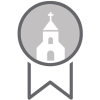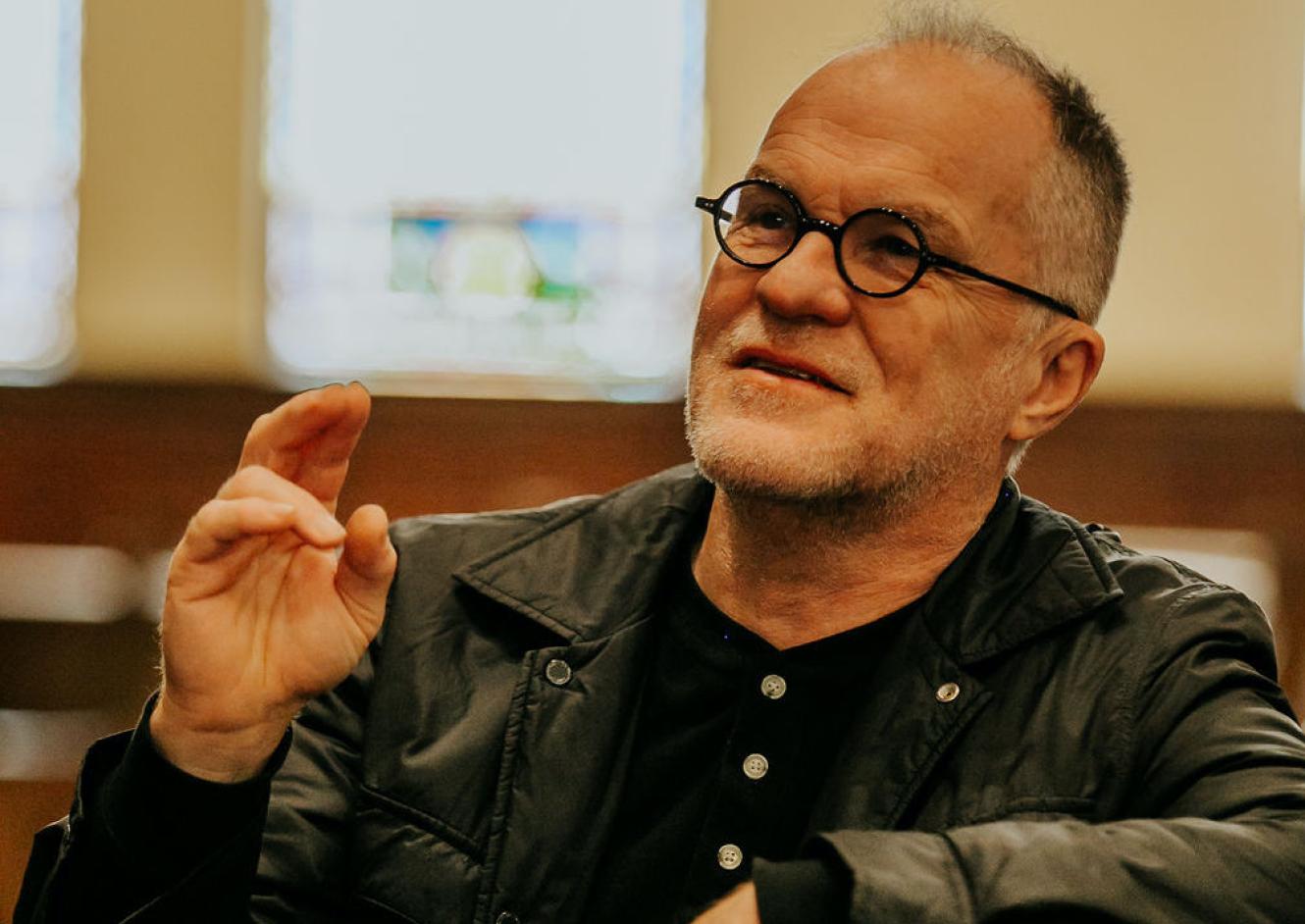Reflections by Dr. Wynand de Kock
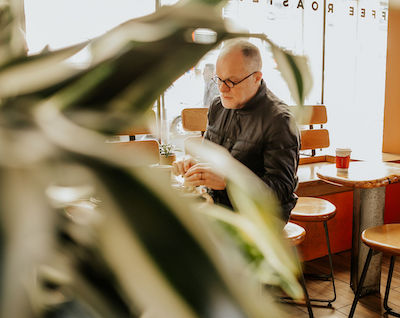 "Apartheid shaped my affections, my desires, more than anything."
"Apartheid shaped my affections, my desires, more than anything."
It was a desire for the Afrikaner nation to survive, to thrive, because it also meant that in this world Wynand was in, you were a good Afrikaner if you were a good Christian and were pleasing God. It instilled within him a desire and a passion for his nation, which he confused with a passion and love for God. What it has left in him is a deep appreciation for the power of affections and the power of these precognitive desires we have that we can’t even put our finger on, but they shape how we live.
In the positive, it made Wynand aware that everybody lives with affections that are precognitive.
We all feel things deeply, even if we don't believe we do. In order to explain, articulate, or construct an argument, we must first feel the explanation, thought, or argument. While we spend so much time thinking and acting, we often forget to take care of our affections.
"While I was preparing for the exam, I had this distinct awareness that ministry and not engineering was my future."
When he was in his final year of high school, preparing for his final exams, Wynand was going to study Engineering, which was very significant in South Africa. He even had scholarships, a place in the residence sorted out, and a job offer after he graduated. Wynand went to his father and told him that he didn’t think he was going to study Engineering; he had a strong sense that he would study theology.
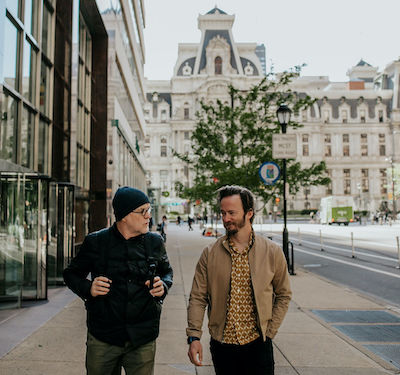 To this day Wynand can still hear his father’s response:
To this day Wynand can still hear his father’s response:
“Your mother and I have always known that this is what you would do. But promise me,” he added, “you will study theology at a university.” Wynand’s father knew that Dutch Reformed ministers were being trained by the best theologians in South Africa at South African universities, and he also wanted that for his son. A few months after his eighteenth birthday, Wynand enrolled as a student at Rand Afrikaans University, now known as Johannesburg University.
Ironically, the direct translation of the name of this university is the Rand African University, but it was not a university where indigenous Africans were allowed to study; it was a university for Afrikaners.
The University was established in the mid-1960s to serve as the bearer and promoter of Afrikaner thought, educating a new generation of Afrikaner leaders. It was here that Wynand allowed himself to be newly infused by the sacred stories, the biblical exegesis, and the theological system that gave birth to the Afrikaner nation and produced the policy of racial segregation, called Apartheid.
“You know that there's something wrong in your world, but you don't know what it is and it's driving you mad. It's like a splinter in your mind.”
Wynand's life was forever altered when Desmond Tutu, then a young bishop, visited his Afrikaner University in the early 1980s. Wynand recognized him as a troublemaker, so he and his friends decided to attend Tutu's lecture and disrupt it. But the opposite happened, as Wynand recalls, "Within minutes I was captivated by his eloquence, humor, beauty, and gentleness." His speech was both enthralling and vexing. He was small in stature, but a giant when it came to speaking the truth.
As Morpheus said to Neo in the Matrix , “You know that there's something wrong in your world, but you don't know what it is and it's driving you mad. It's like a splinter in your mind.” That is how he felt after this lecture. Desmond Tutu's assessment of the disparity between the stated objectives and the practical consequences of Apartheid provided Wynand with his first glimpse into the misery caused by Apartheid.
Wynand's naive childhood faith was shaken by Tutu’s words.
Tutu explained that millions of indigenous Africans had been uprooted and forced to live in arid, inaccessible ghettos of poverty and misery. They became inexhaustible sources of low-wage labor. "I have visited many such dumping grounds," Tutu explained, "and I will never forget the little girl who said that when there is no food to borrow; they drink water to fill their stomachs." People were starving in a land of record crop surpluses in the name of God, made possible by theological answers.
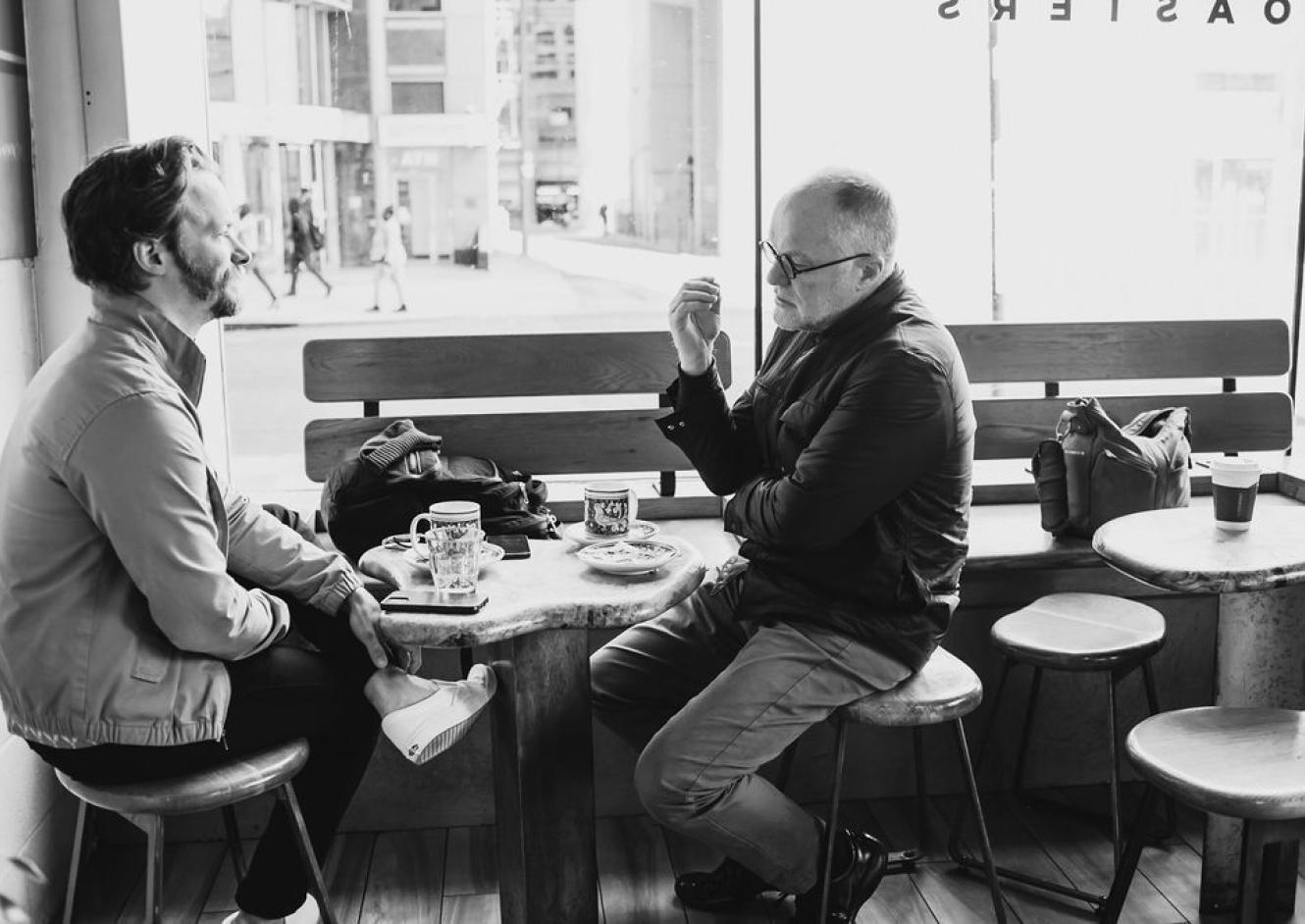
"How is this possible?" Wynand asked.
Apartheid's political and theological answers provided Wynand with certainty as a white South African, but it caused misery for those who were not classified as white. Apartheid provided the “perfect” political and theological answers to race questions for those in power, but those without power lived under the tyranny of the perfect answer, the foundational answers of that ideology. For Wynand, this was just the beginning of a long journey out of systemic and personal racism. He knew he couldn't put Afrikaner before Christian, Verwoerd before Jesus, or nation before God any longer.
From this point forwards, Wynand’s life would be radically different.
Wynand went to work in one of those inaccessible ghettos of poverty and misery of Cape Town in the mid-80s when South Africa was in the midst of the anti-Apartheid struggle.
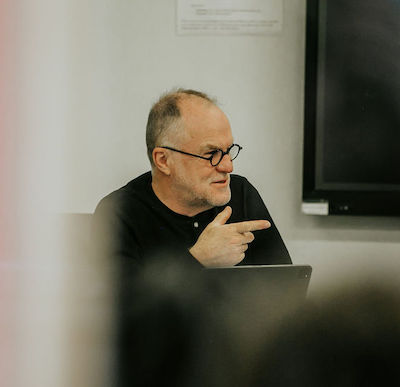 Wynand returned to South Africa after a series of radical experiences that exposed and confronted his racism while studying in the United States.
Wynand returned to South Africa after a series of radical experiences that exposed and confronted his racism while studying in the United States.
He was adamant about opposing racism in his personal life as well as wherever he encountered it. He was appointed Academic Dean of a Bible college on the Cape Flats, just outside of Cape Town.
Although the college's racially diverse student body was illegal, it was a beacon of hope.
To use his own words, "Here, I learned that theology begins with a deep love for God and your unwanted and often hostile neighbor, which then inspires our actions and thoughts. It is a theology from the inside out long before it is a theology from the top down."
"We had to do all kinds of things to learn how to teach when there’s the chance for disruption due to political upheaval."
At the University of Western Cape, where Wynand also taught, there were often mass boycotts to put pressure on the Apartheid government. He could no longer teach in the normal way and had to adapt. Long before emails and Zoom, Wynand had to write his lectures for his students and drop it in a safe place for his students to collect. They in turn would leave their assignments at the same place for evaluation.
It was such a dangerous time, but it was also a time of innovation.
This experience convinced Wynand that theology had a huge role to play in creating a free and democratic South Africa. But that it would mean that the way we do theology would need to change from having the rights answers to having the right questions.
"When political upheaval became the new normal, we had to find new ways of teaching."
The students wanted to know what it meant for them when an armored vehicle rolled onto the school grounds and opened fire on students, often their own siblings. When you have a gun to your head, how can you make peace, forgive, and turn the other cheek? Prior to moving to the Cape Flats, Wynand attempted to find objective truth, fine-tune doctrines, and articulate the perfect theological answer. But, in the midst of the chaos that was life on the Cape Flats in the 1980s and 1990s, he realized that the best he could do was find the best answer for now.
"Doing theology is like painting a bird in flight." - Karl Barth
This was the best we could come up with in theology. We don't need more theological knowledge to do this; we just need to know how to do theology. Wynand quotes Karl Barth, who once said that doing theology is like painting a bird in flight. That concept was appealing to Wynand.
After Apartheid ended in 1994, Wynand began to think and imagine on what theology might look like if we had to train people who were planting churches in a post-Apartheid South Africa.
The intention was to create a course that would require people to do theology in the midst of their ministry contexts, putting less emphasis on theological specialization and more emphasis on integration and incarnation. Wynand’s theological mentor, James Fowler, once said that theology is a critical and constructive reflection that inevitably leads to ongoing modification and development of the ways in which the church “shapes its life to be in partnership with God's work in the world."
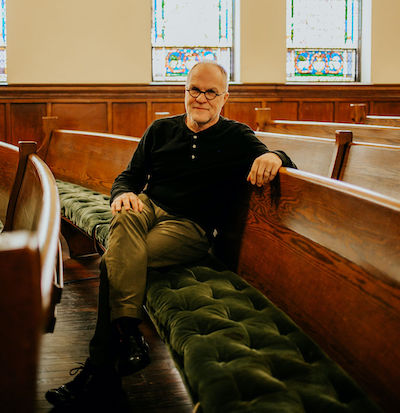 The church's practices, such as being a community, sharing the gospel, worship, and so on, could serve as a lens, a portal to theological reflection.
The church's practices, such as being a community, sharing the gospel, worship, and so on, could serve as a lens, a portal to theological reflection.
Because these practices habituate believers and shape our affections, theological study begins in our hearts. Wynand realized that we could design a course in which the local church serves as the classroom, and faculty from seminaries and colleges interact with pastors as thoughtful practitioners to ensure that theory informs practice and practice shapes theory; this would be a seminary without walls, an open seminary.
The students loved it.
They could immediately look at something like worship, proclamation, or spiritual formation and apply it instantly to the churches they were planting. It just became a great conversation from the start. The good news was that the Openseminary approach was accredited by University of Pretoria in 2001, and in Australia in 2006. Wynand became a college principal and reached out to Eastern University for some mentoring for this new role. Dr. Black wanted to bring the Openseminary concept to Eastern, which was also Wynand's dream. For over a decade, Palmer Theological Seminary and Eastern University have hosted Openseminary.
Wynand was asked to expand the Openseminary offerings after a few years.
It was simple to supplement the Master of Practical Theology with specialized courses to create a fully online Master of Divinity degree. Wynand is also working on a Doctor of Philosophy in Professional Practice (DPhil), which is a practice-led doctorate that begins with the candidate's work context rather than a professional or academic discipline. The degree title refers to a doctorate in the British style, in which a doctoral supervisor is appointed to guide the student through their program.
Learning from those who have accumulated wisdom, skill, and knowledge through professional practice is one of the most pressing needs of local communities and societies.
Unfortunately, there are few places where these gleanings can be deepened and shared for the benefit of others. Wynand believes that there is a need for a doctoral level program for professionals at the pinnacle of their careers to reflect on and build on the "bodies of work" they have created.
"Whether we realize it or not, we are theologically involved in our professions."
This degree allows people to think about their professions, whatever they may be, and what they have done through a theological lens. The course begins with a theological reflection on one's vocation and then examines the artifacts, or work product. This doctorate will enable professionals to ask themselves, "If I could do it all over again, what would I do differently?" In this way, this doctorate is generative, which is a concept dear to Wynand. The Doctorate creates a moment to look back while also looking forwards, and then it creates a pathway to be generative, to pass on the knowledge that they have acquired to the next generation. They have no idea that they have acquired that knowledge, that it has become ingrained in their bones. Wynand believes that this doctorate allows him to unearth that and pass it on as a gift to the next generation.
Story Credits
Reflections by Dr. Wynand de Kock
Photography by rachelannphotography.com
(Photos are from this Spring 2022 in Philadelphia during an Openseminary residency week)
Produced by: weloveandlead.com
Creative Direction: dreamphase.media

